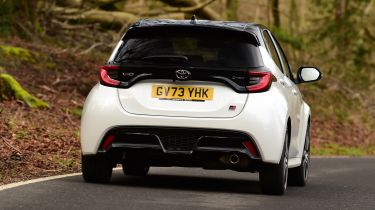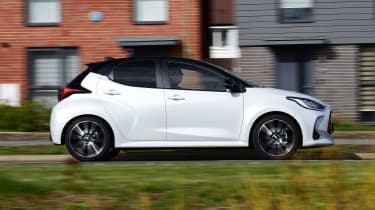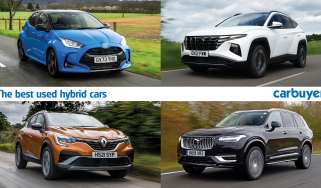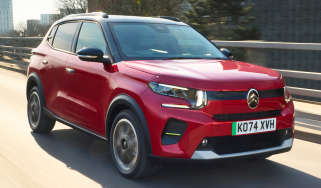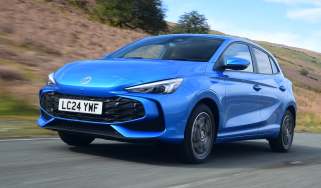Toyota Yaris review - MPG, running costs & CO2
Aside from pure electric rivals, there will be few superminis that are cheaper to run
Toyota has spearheaded the push towards hybrid cars since the launch of the original Prius. One advantage of the technology is the small battery pack compared with pure electric rivals like the Peugeot E-208, which is not only much lighter but also keeps the car’s list price down.
Toyota Yaris MPG & CO2
Following a facelift to the Toyota Yaris Hybrid in 2024, it’s now offered with a choice of two hybrid power options based around a 1.5-litre three-cylinder petrol engine, paired with an electric motor. The original system carried over from the pre-facelift cars produces 114bhp and gets fuel economy figures of up to 70.6mpg. When we tested it, we achieved an average of 65mpg, with figures actually improving around town, the opposite of what you’d get in non-hybrid cars. CO2 emissions for this version reach a maximum of 112g/km.
The latest, more powerful version of the hybrid system gets an increased power output of 129bhp, but fuel economy only slips down marginally to around 67.2mpg, probably because it’s only available on heavier GR Sport cars with larger wheels. CO2 emissions are actually lower at up to 98g/km, thanks to the system’s ability to run on electric power for more of the time. You can even click an ‘EV only’ button to force the Yaris to run on electricity only, but the system is somewhat limited as it can only provide enough electric-only range for a couple of miles at a time.
In any case, the CO2 emissions of the Yaris aren’t low enough to qualify it for free VED (road tax) – which is charged at a slightly reduced rate – or exemption from the London Congestion Charge, but it does make it cheaper to run than an equivalent petrol or diesel supermini. Company car drivers should also have small tax bills thanks to a reasonably low Benefit-in-Kind (BiK) band.
More reviews
Repair bills shouldn't be a big concern either, thanks to Toyota's 'Relax' warranty. This can last for up to 10 years/100,000 miles, but only if the car is serviced at a franchised Toyota service centre. There's no extra cost for the warranty, making it the most generous in the industry, pipping Kia's seven years of cover and the five years offered by Hyundai and Renault.
Insurance groups
The previous Yaris hybrid started in group eight; about the same as a Ford Fiesta or SEAT Ibiza with a 1.0-litre turbo petrol engine. The Yaris hybrid spans from group 13-14 out of 50, which is slightly higher, so insurance could be more costly for some drivers. Insurance groups have yet to be confirmed for the more powerful facelifted GR Sport model, but we’d expect at least a marginal increase in insurance costs because of the uptick in performance.
Warranty
The Yaris previously came with a five-year warranty, but Toyota has now moved to cover that can last for up to 10 years or 100,000 miles. The only hitch is that you'll need to service your car at a main Toyota dealer to keep extending the cover period, but it is longer than any rival.
Servicing
While not as simple as an all-electric model, the Toyota Yaris should require less maintenance than most petrol or diesel models. There's no clutch for a start, and regenerative braking tends to extend the life of brake pads and discs. Toyota also offers fixed-price servicing plans for owners looking to spread the cost of regular maintenance.
